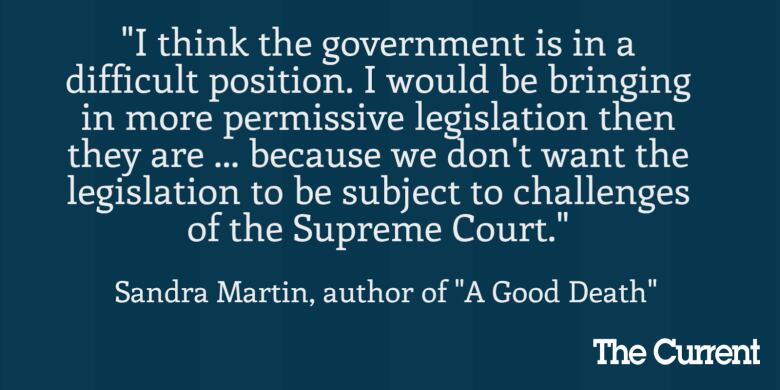Doctor-assisted dying: How Canadians grapple with death


Sue realizes that it may be too late for her but for all other Canadians in a similar predicament, this issue should be resolved in parliament.- Chris Considine, Sue Rodriguez dying of ALS, 1993
Nearly a quarter-century ago, the long and contentious debate over assisted dying in Canada still echoes loudly today.
Canada's parliament will finally resolve the issue of assisted dying — by order of the Supreme Court. A ruling last year concluded that the ban on assisted dying violates the right to life, liberty and security of the person. And new federal legislation governing physician-assisted death is expected to be introduced any day — parliament has a court-imposed deadline of June 6 to have new laws in place.
However, there's no such deadline for society to come to grips with the new reality of how we die.

And that goes especially for the baby boom generation that will be taking ownership of life's ultimate decision as no generation has ever done before.
Journalist Sandra Martin has been exploring important questions around how Canadians grapple with death and charts the history of the right-to-die movement in her new book, A Good Death: Making the Most of Our Final Choices.

This segment was produced by The Current's Liz Hoath.